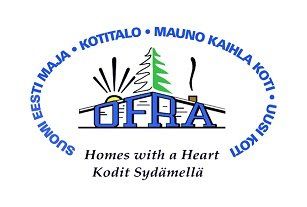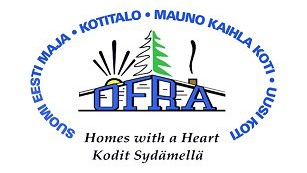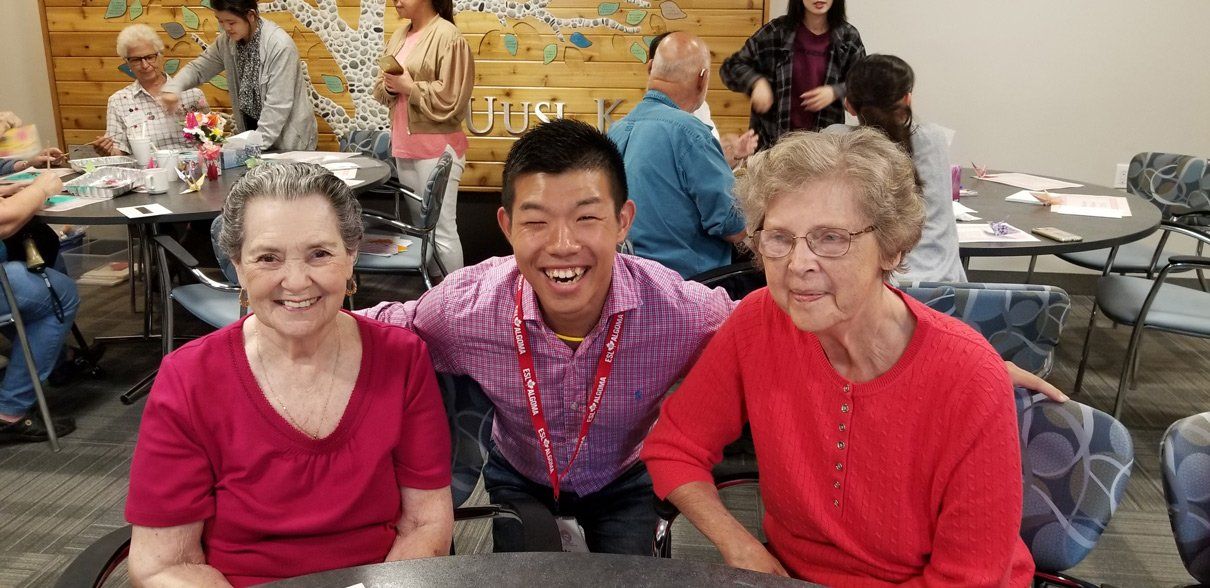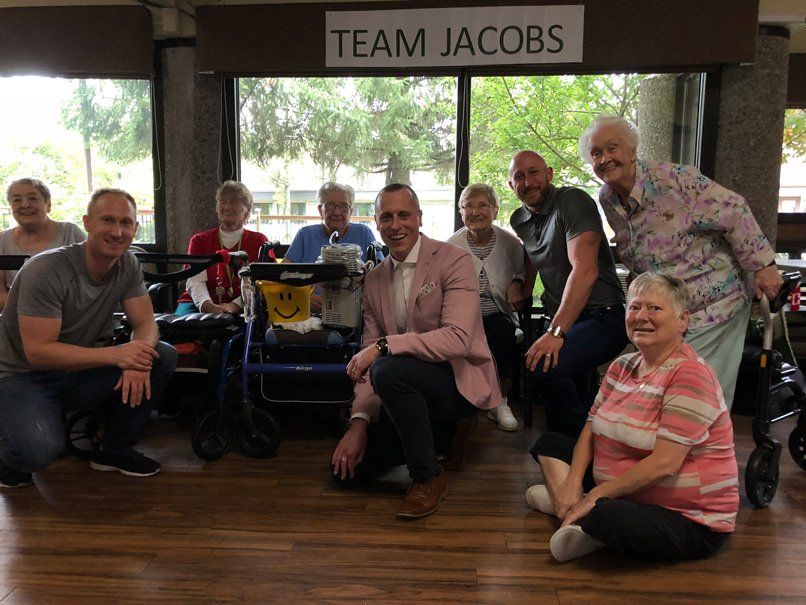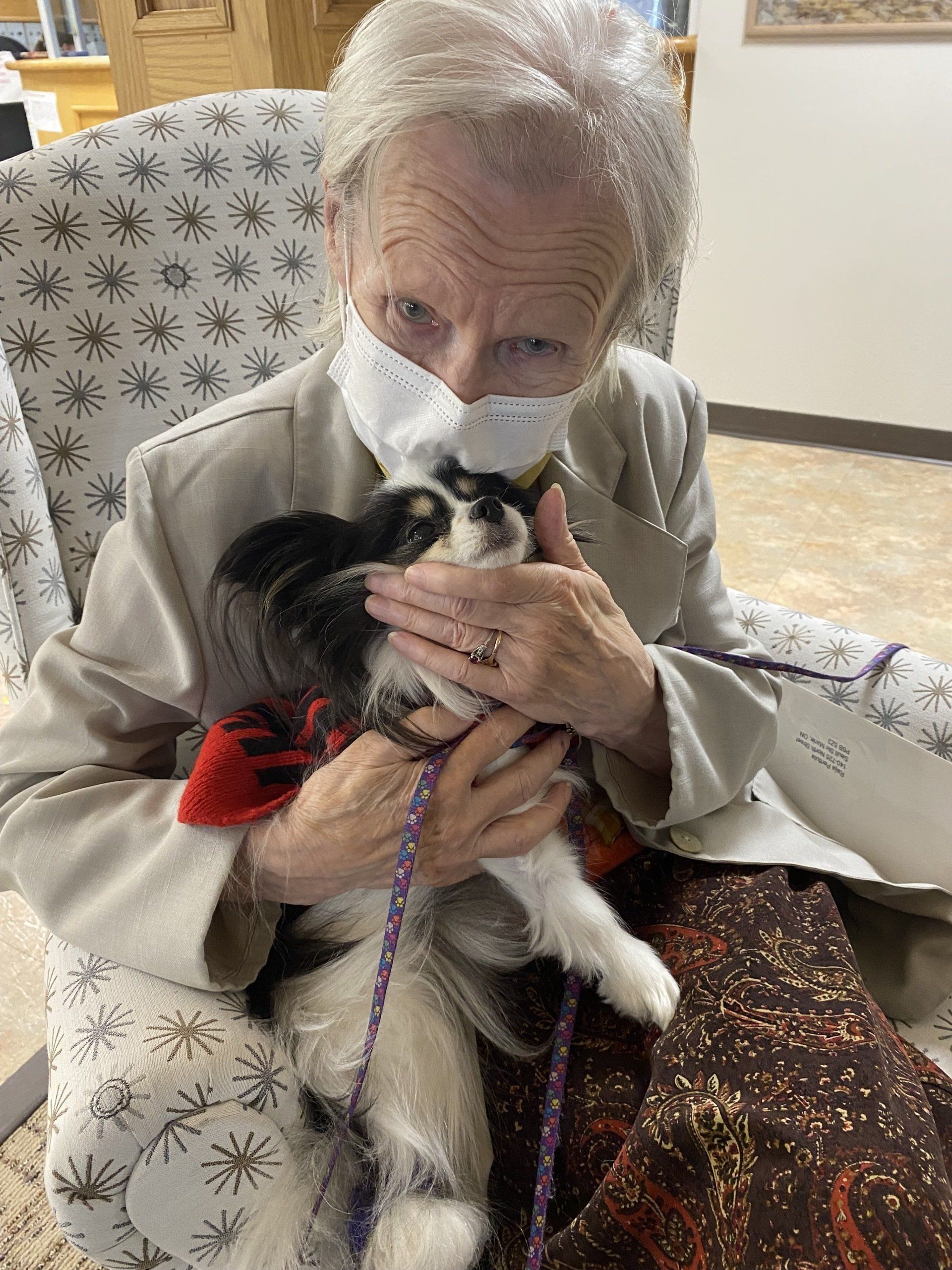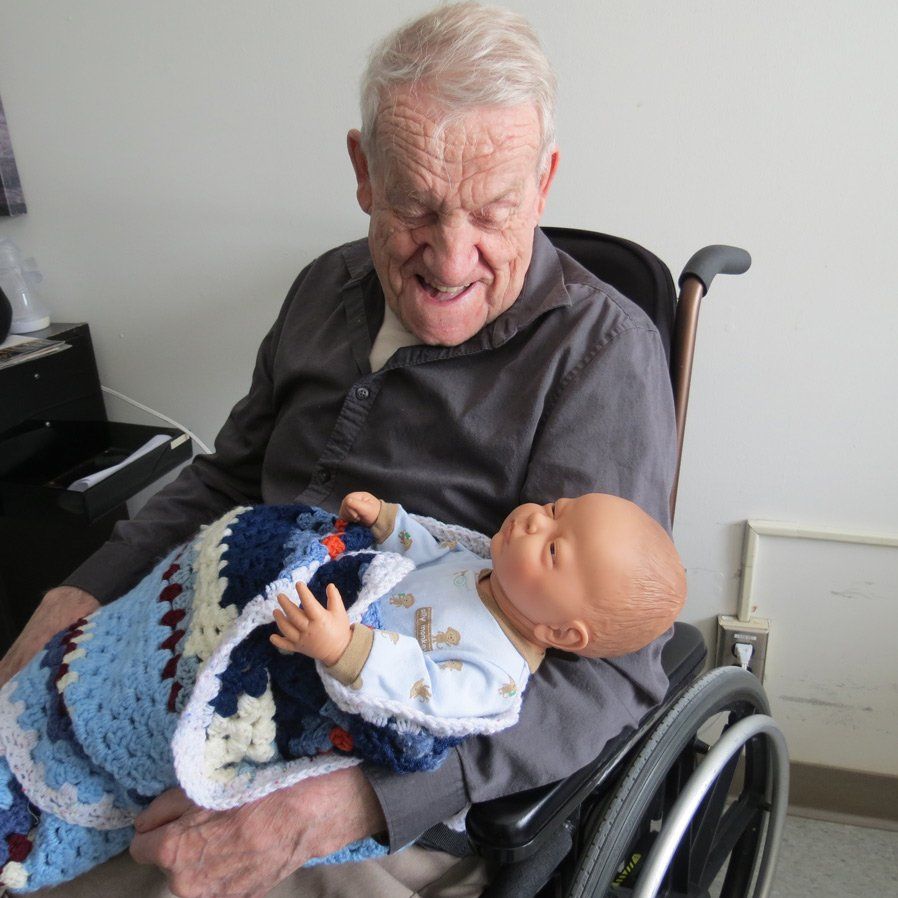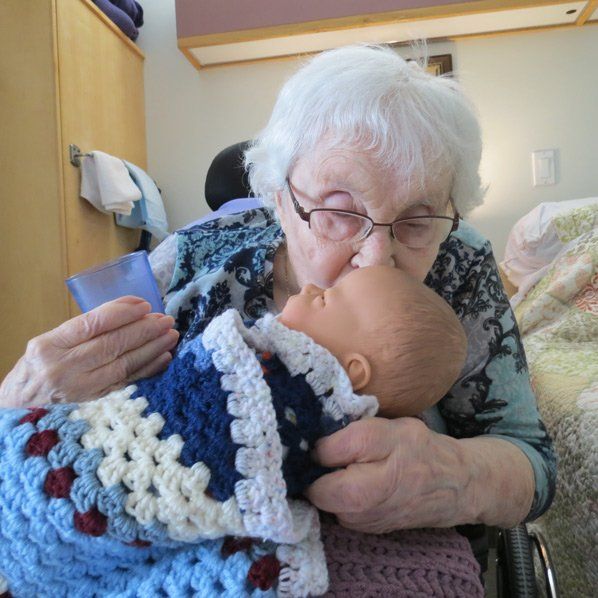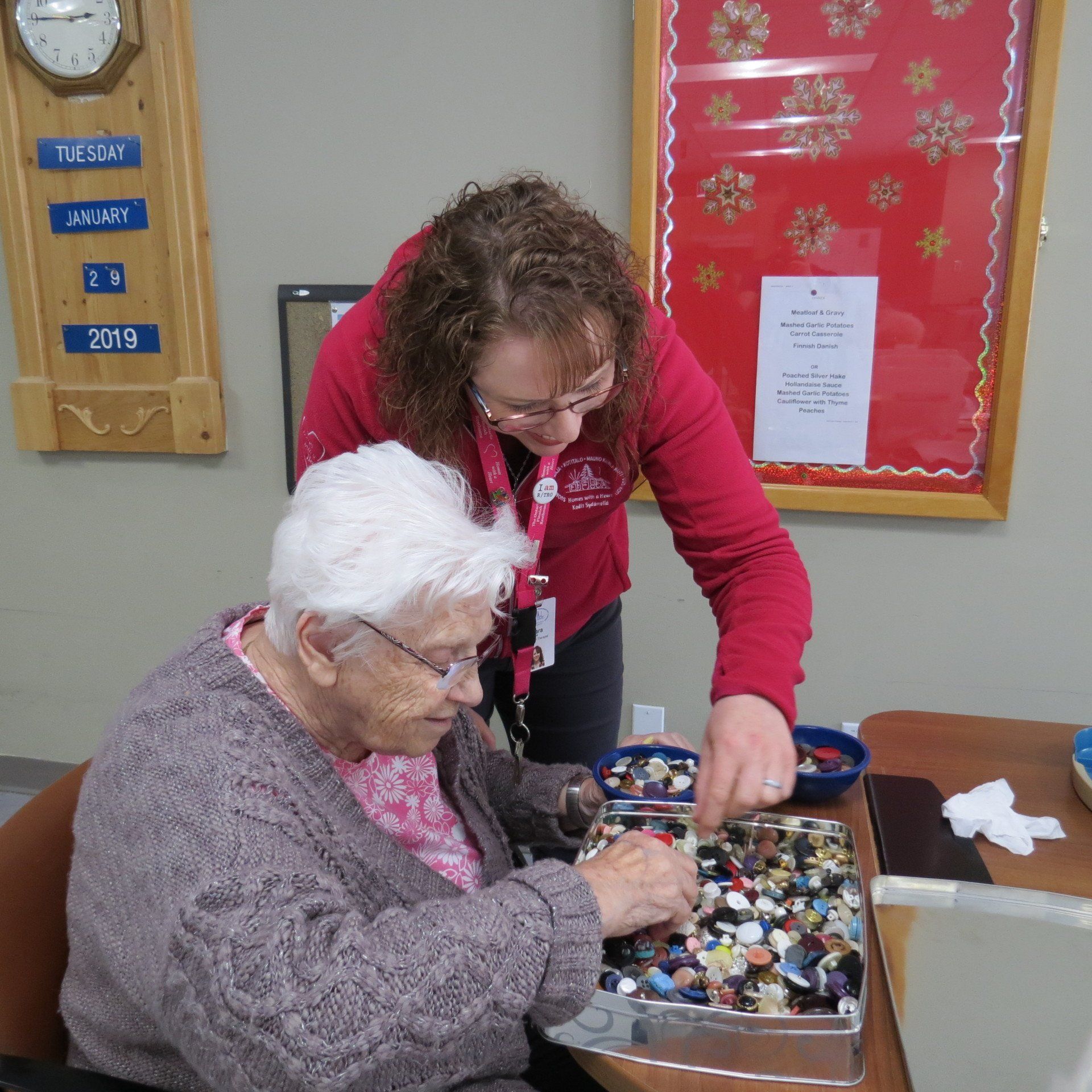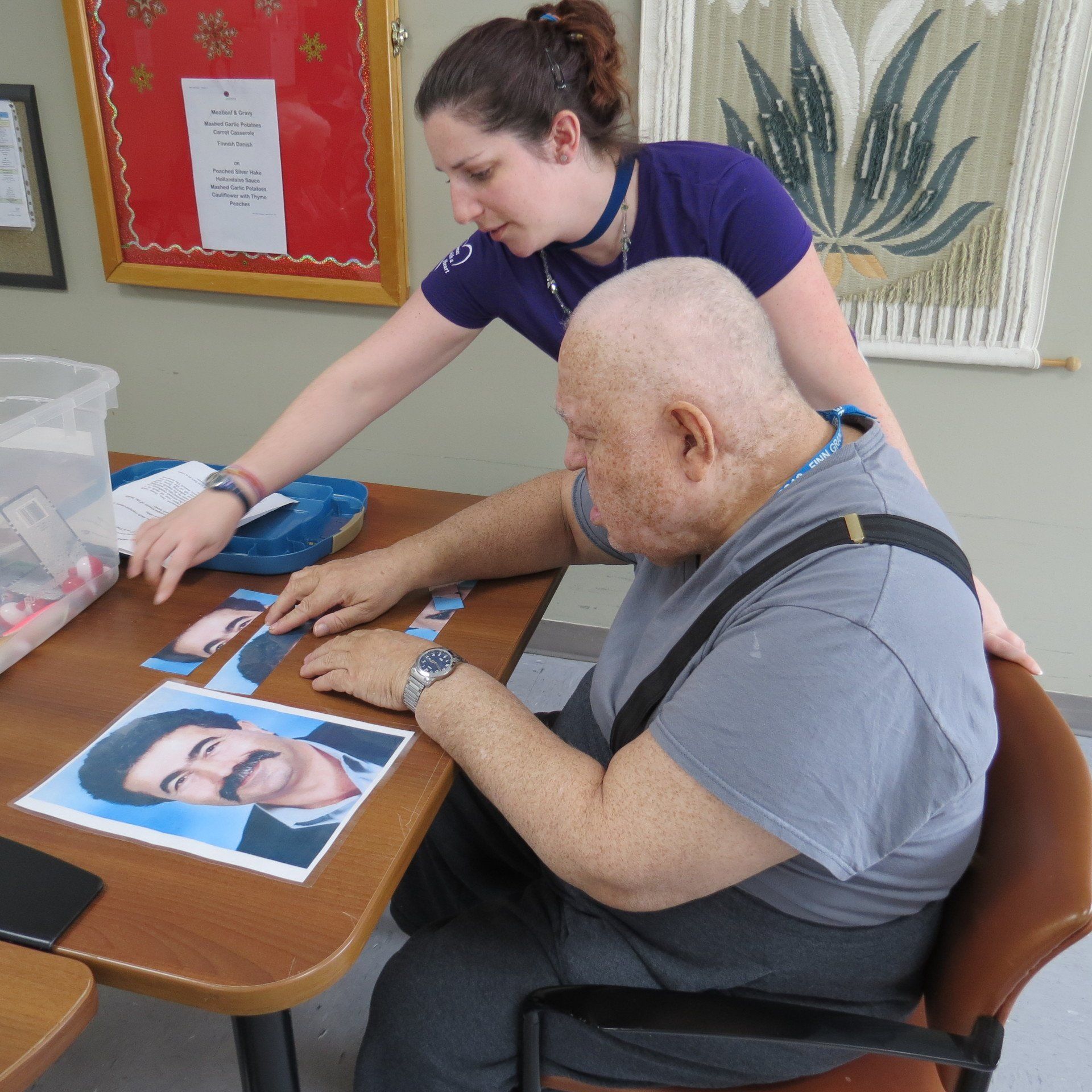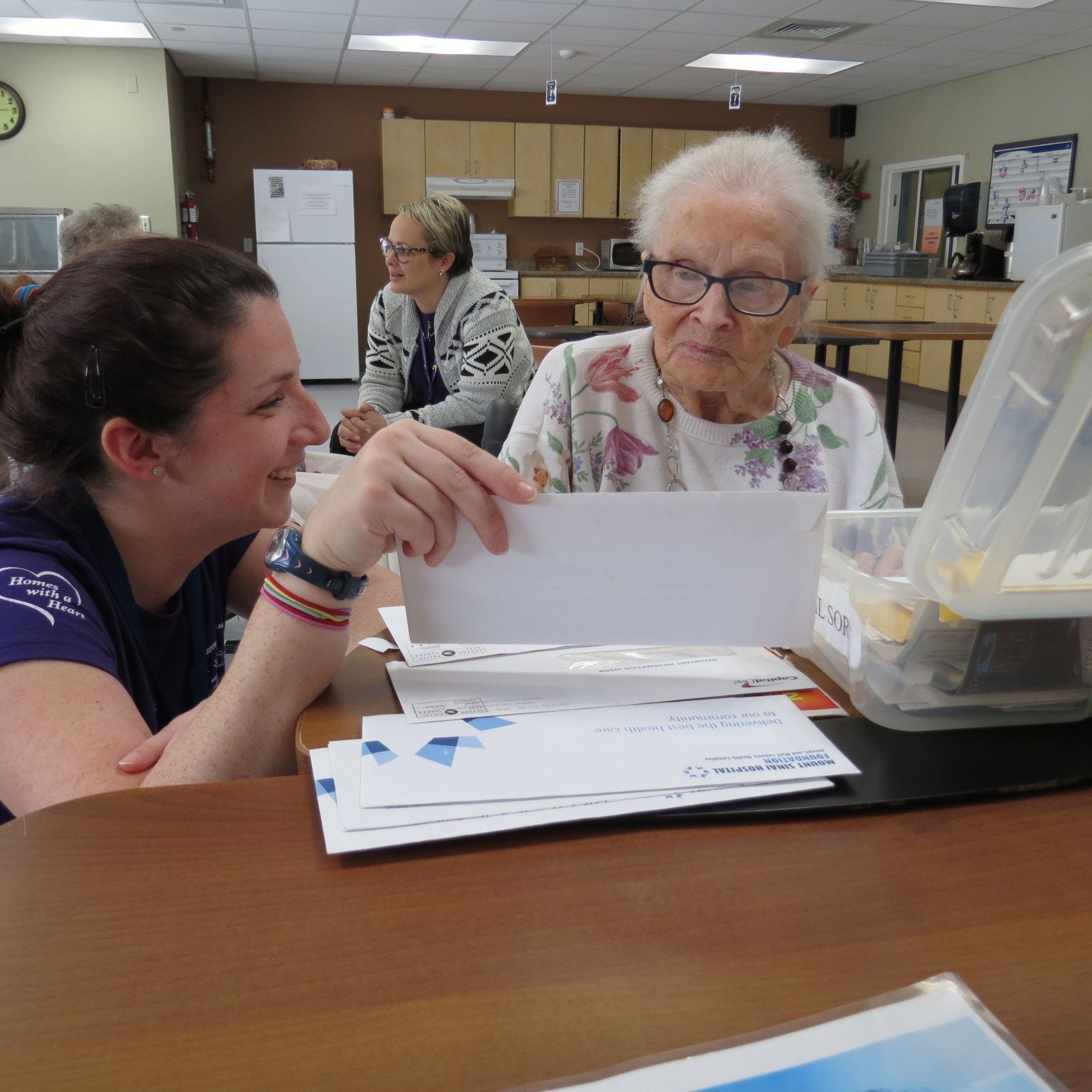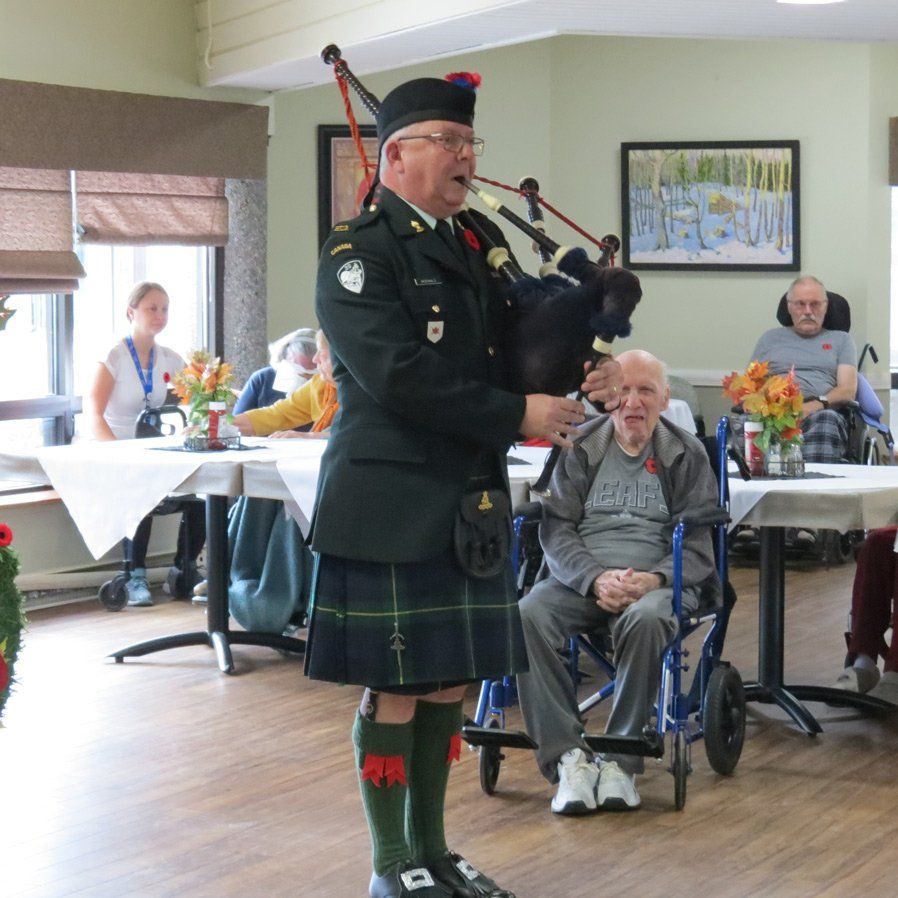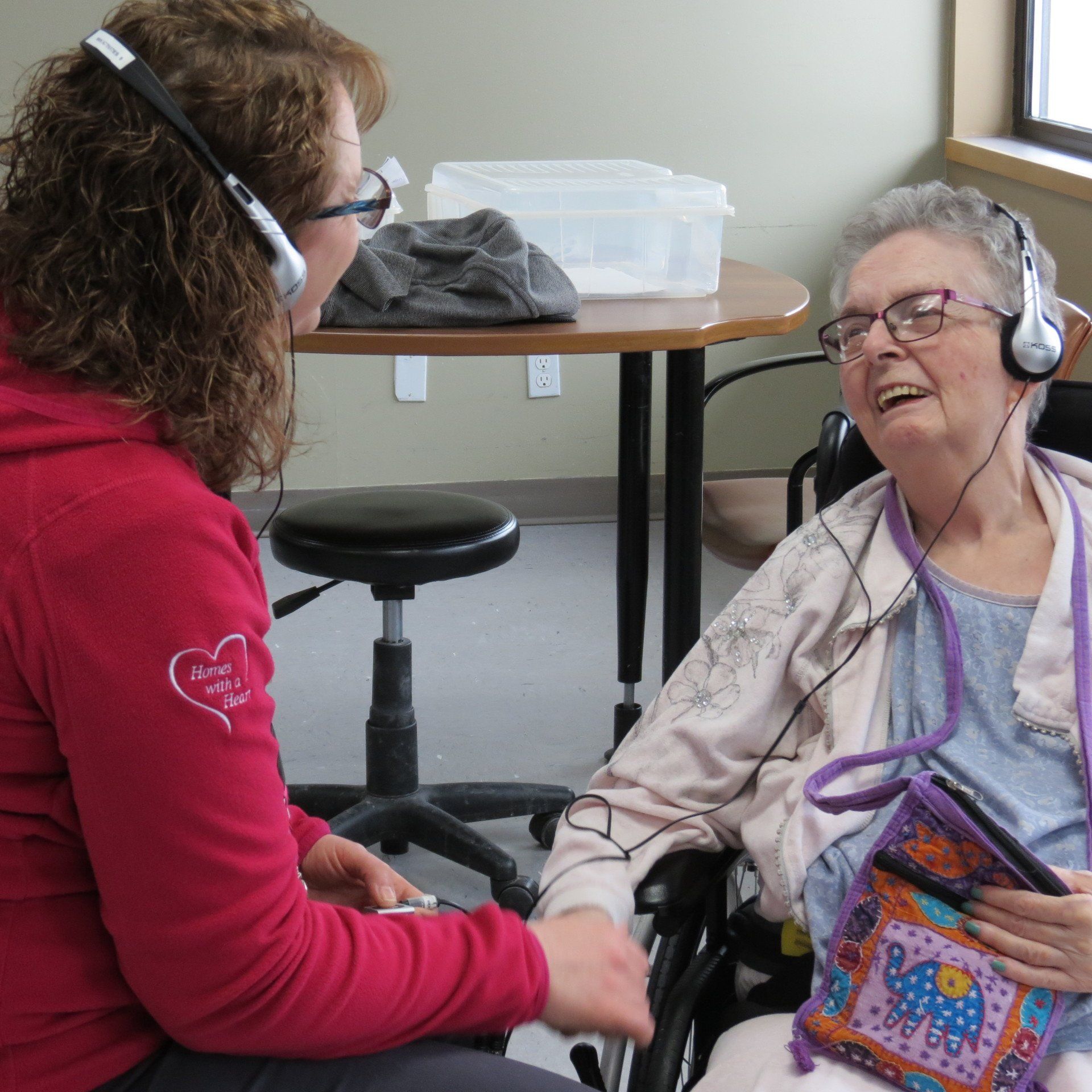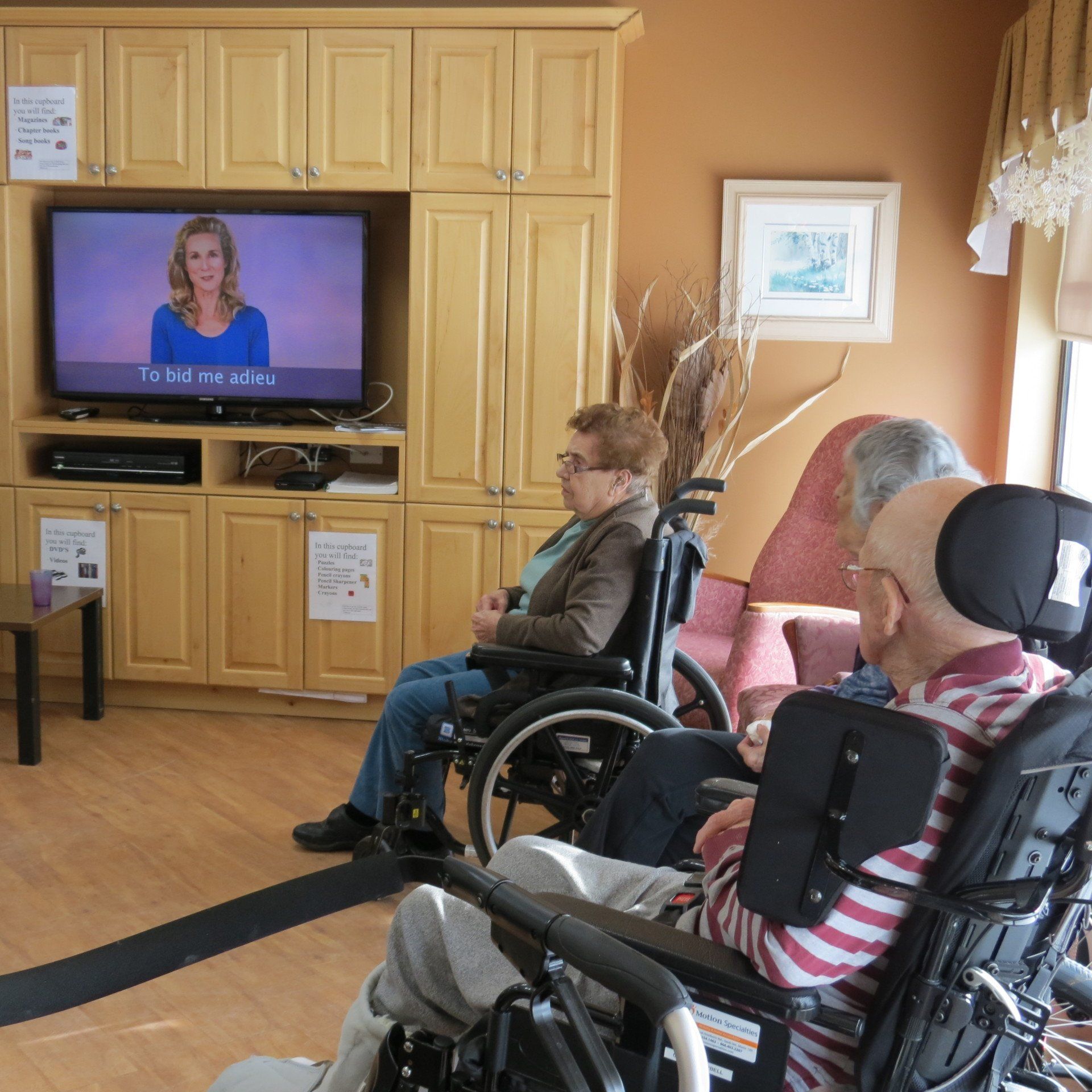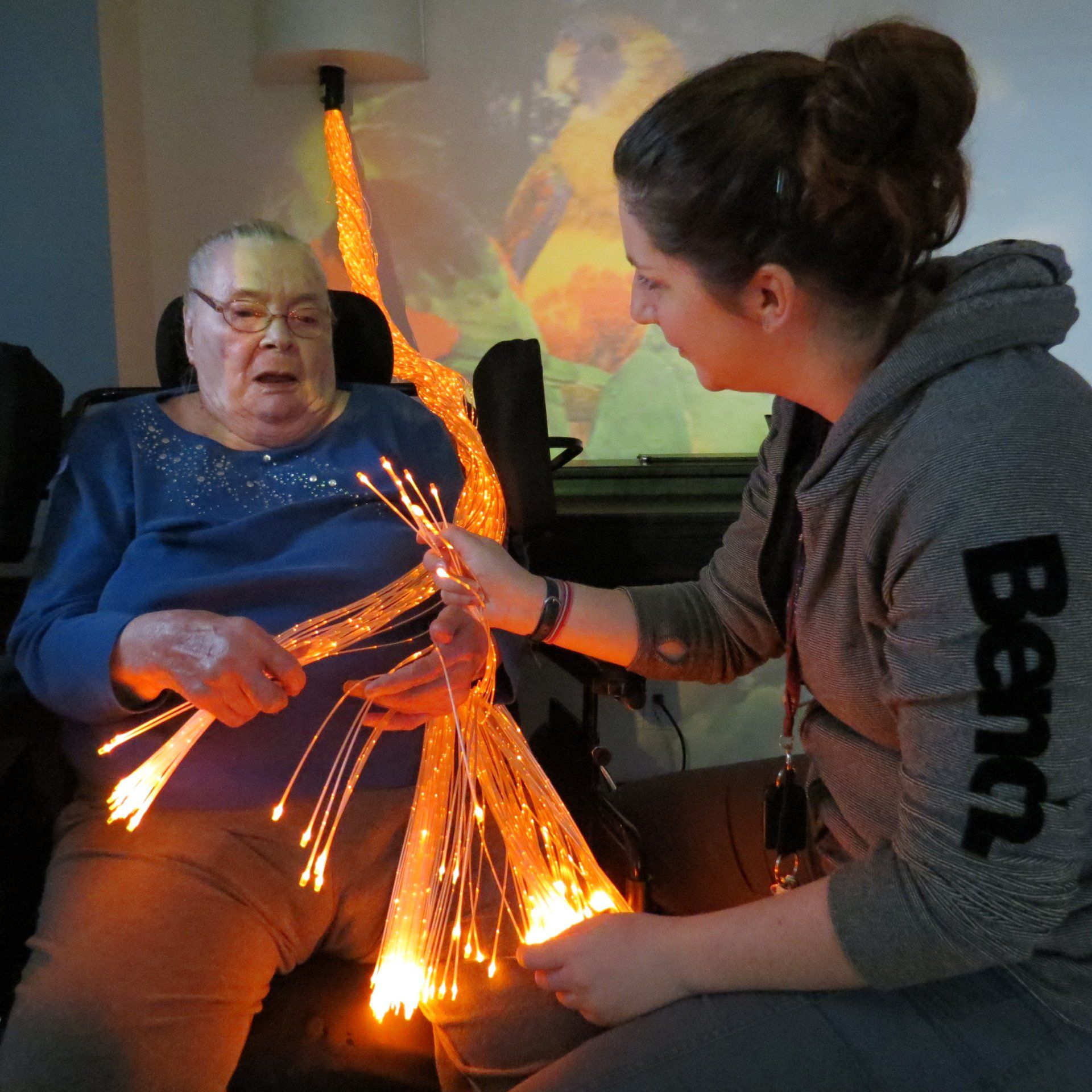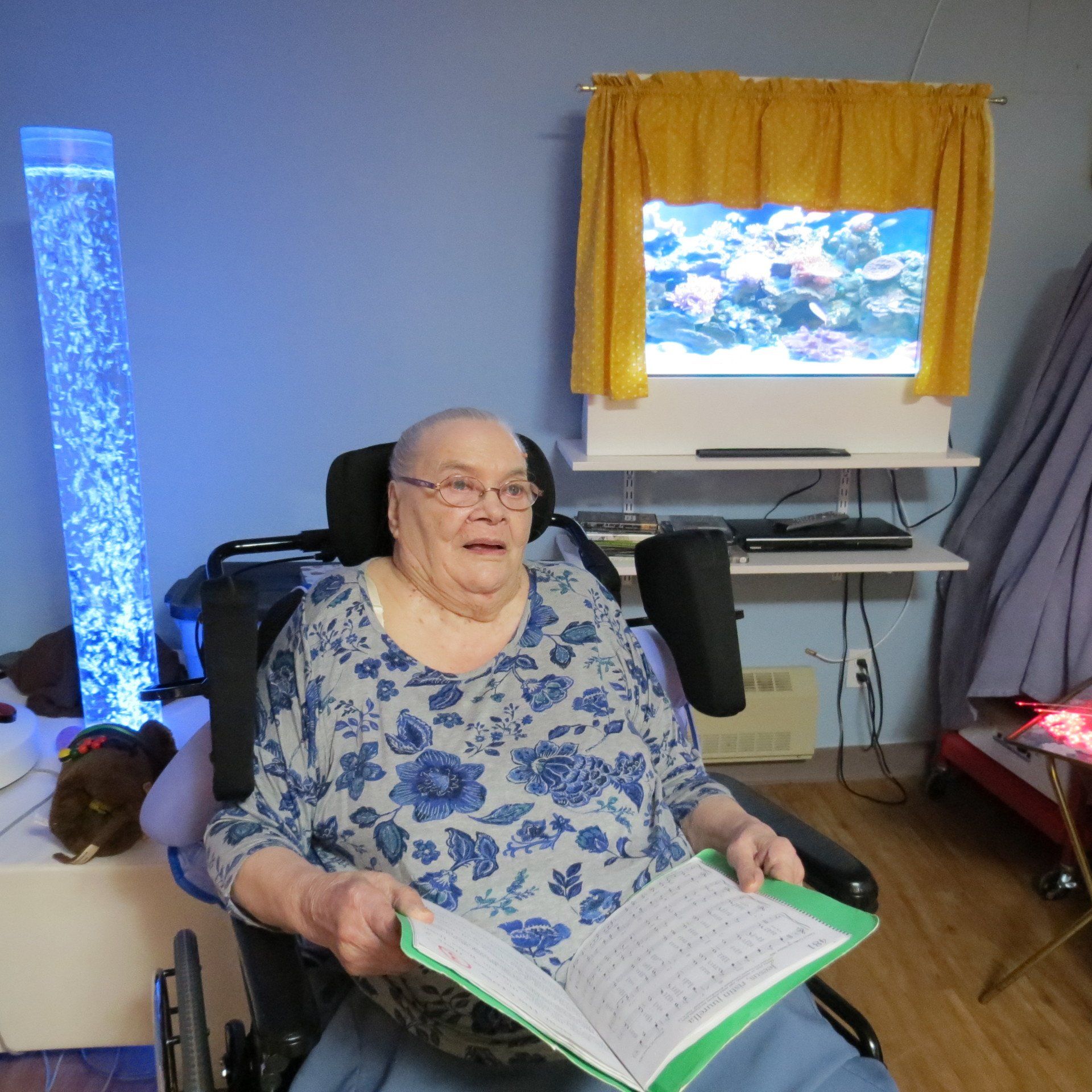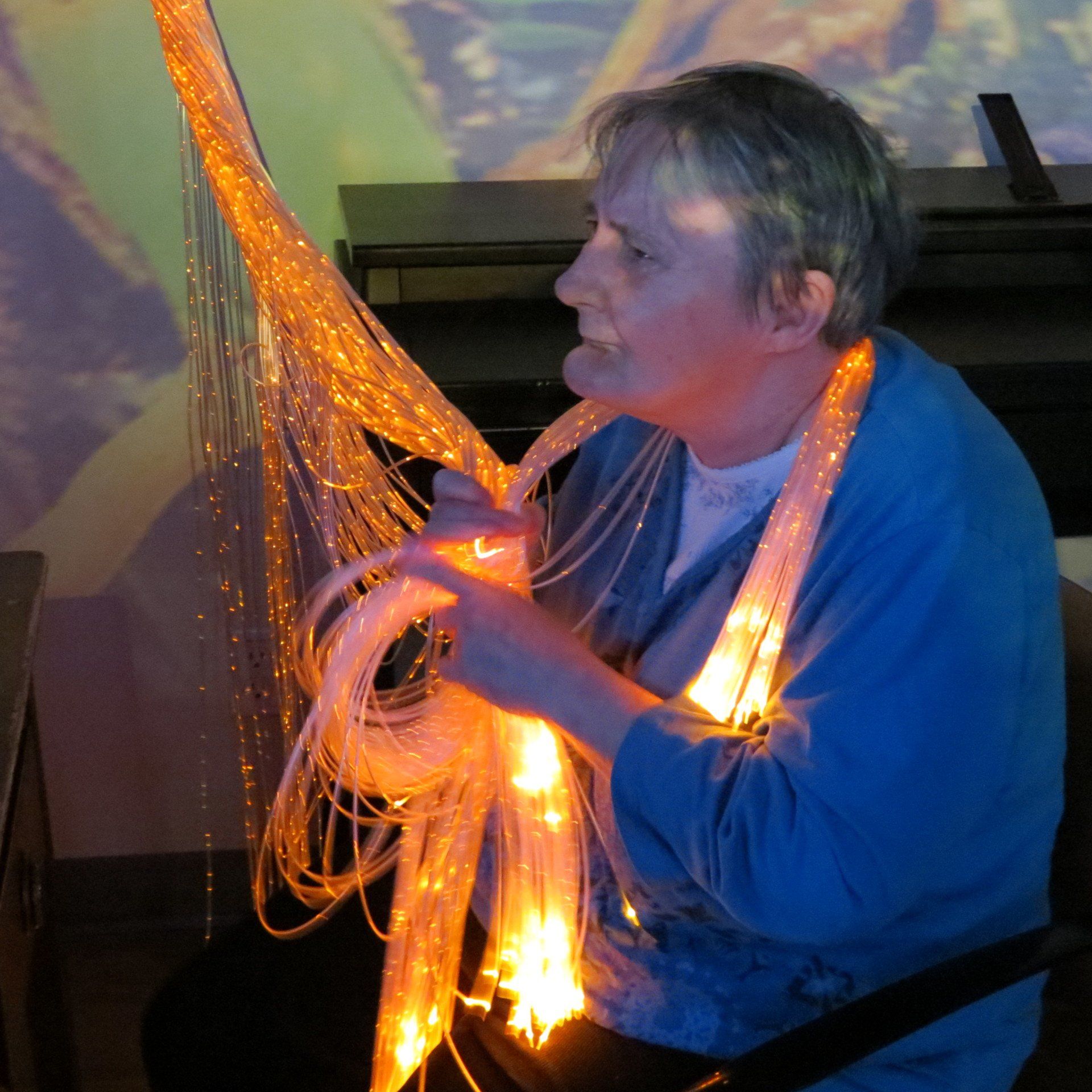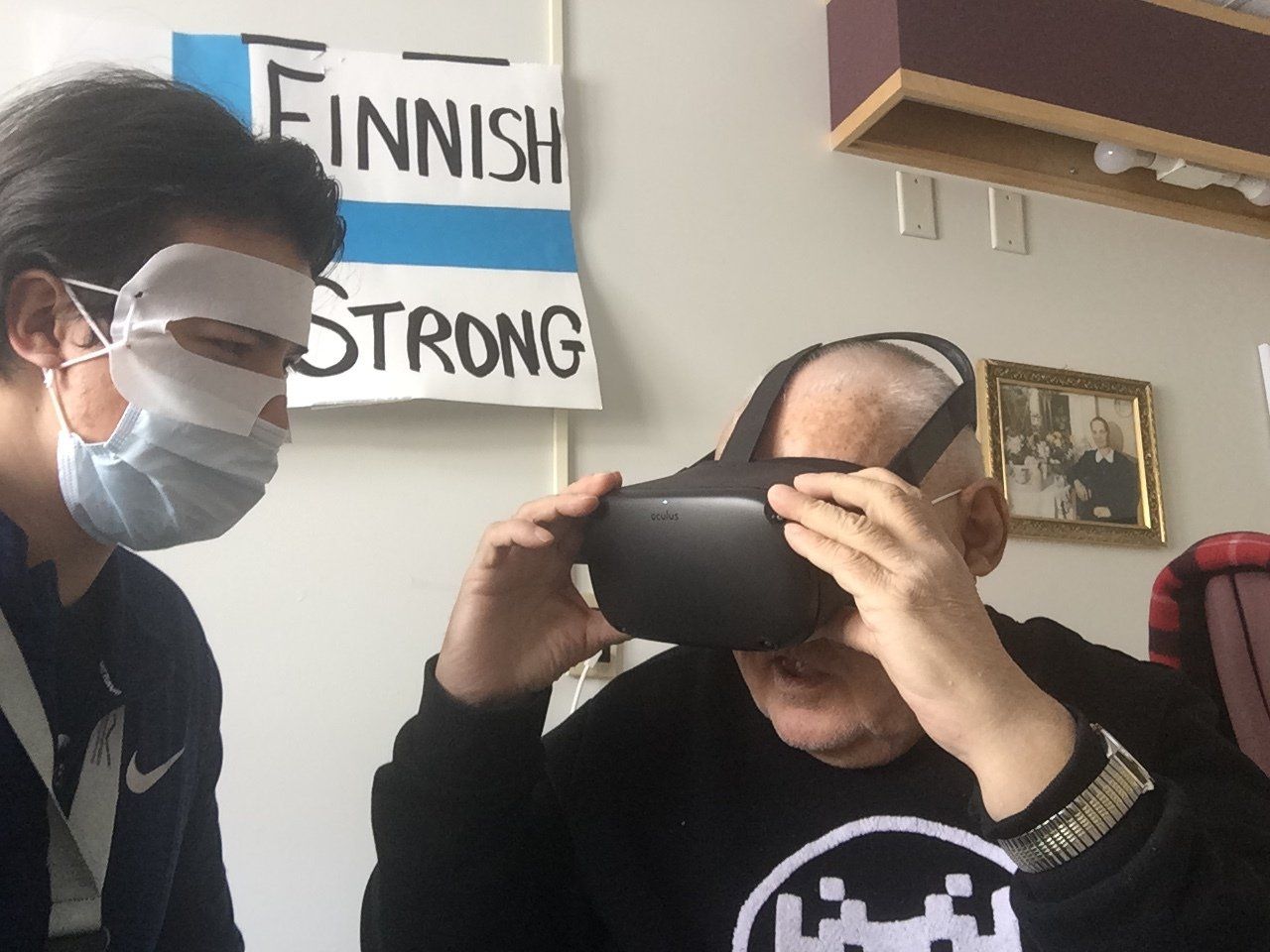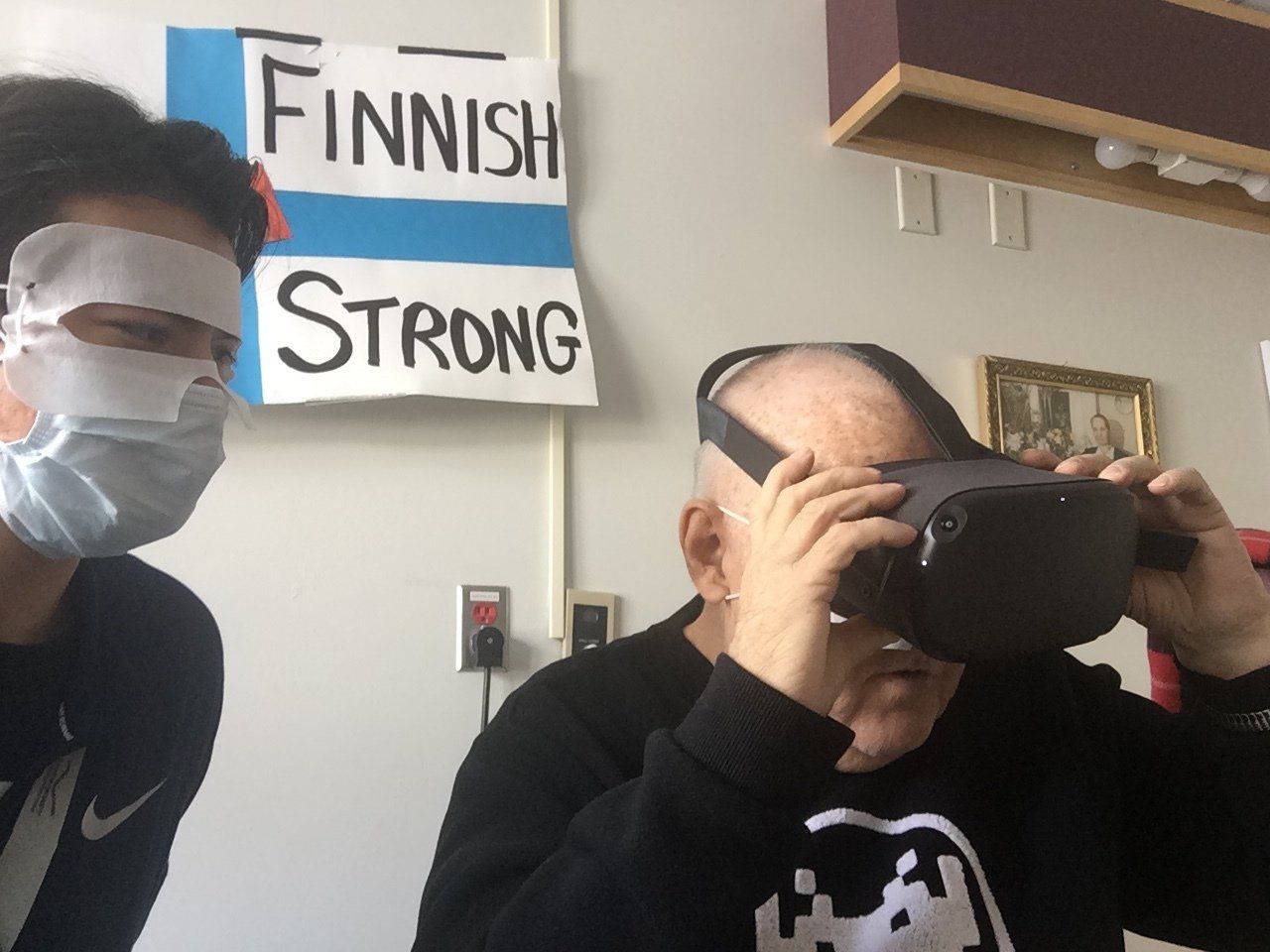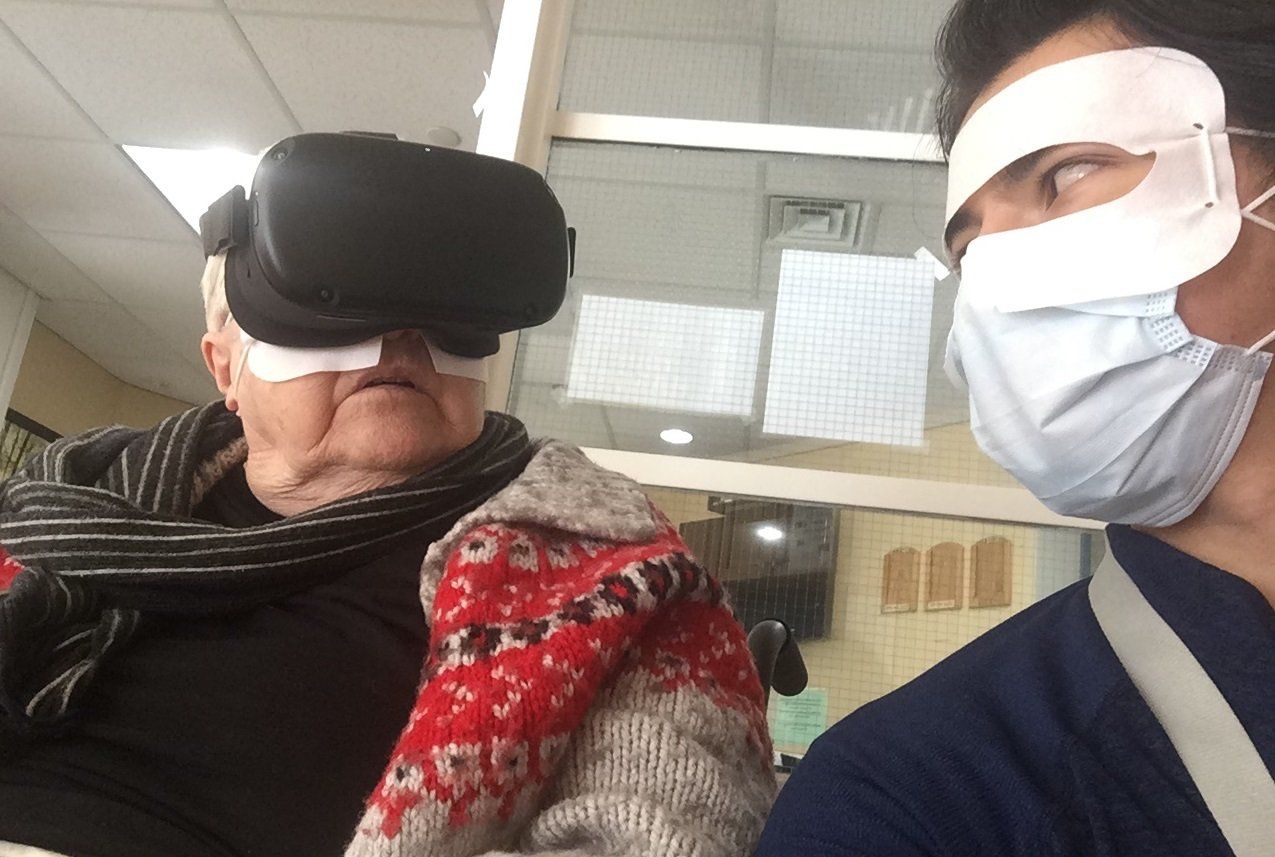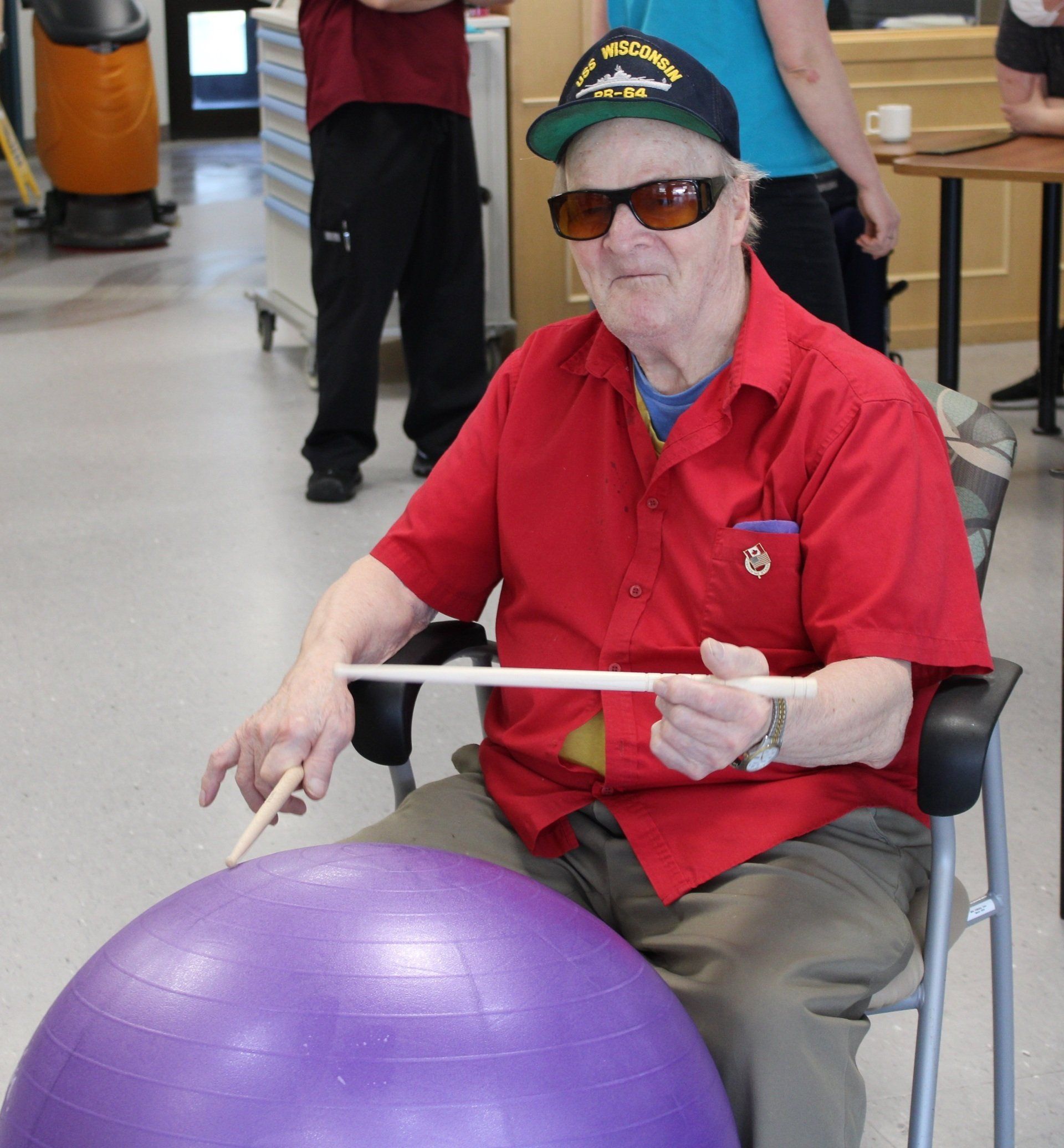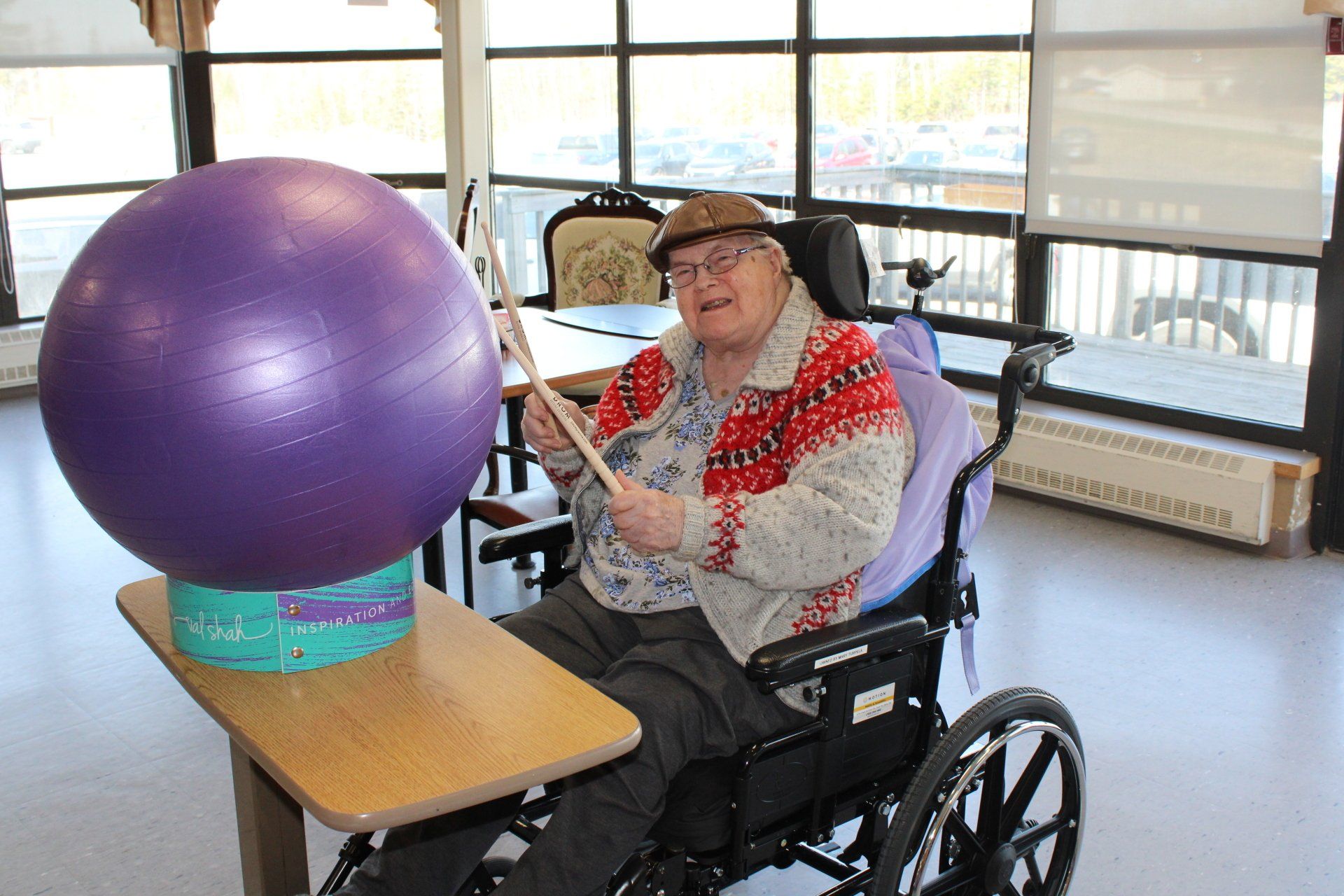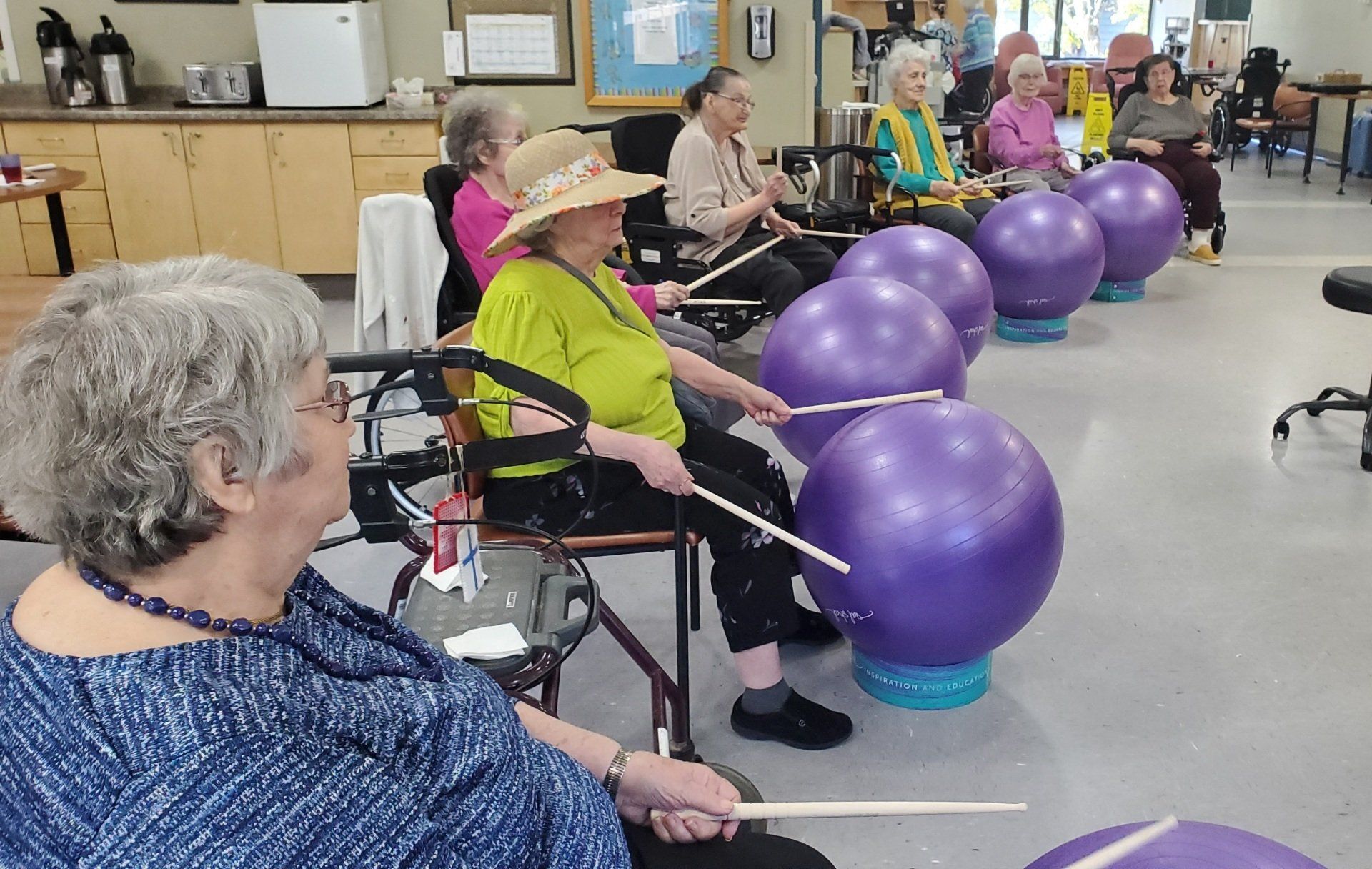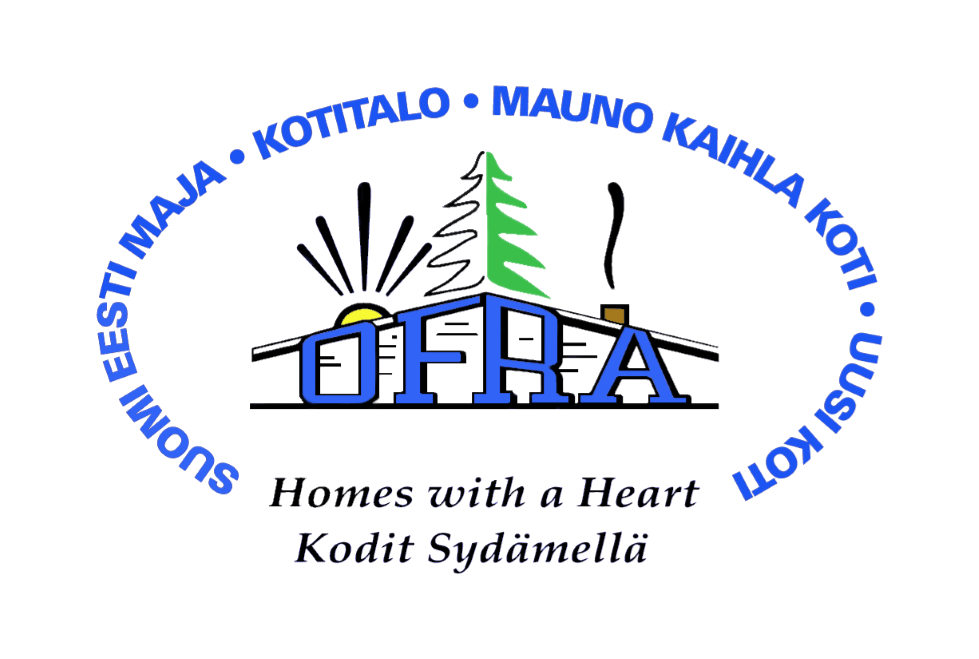Therapeutic Recreation & Activity Department
View Our Therapeutic Activities Below
Doll Therapy
Montessori Interventions
Music & Memory Interventions
Snoezelen Room
Virtual Reality
Virtual Reality is the intervention in which computer generated technology is used to produce three-dimensional images to create a life-like environment. The environment that is created uses multi-sensory information (i.e. visual, auditory) to simulate a real world environment. The users of the Virtual Reality technology are able to manipulate what they see, giving them the illusion that they are actually present in the virtual environment.
Residents at OFRA wear a headset that covers the eyes completely, eliminating the ability of the resident to see the real world around them. This creates a totally immersive experience and allows them to focus on what they are seeing and hearing in the virtual world. They also have 2 hand controllers that allow them to control the virtual experience. Examples of virtual environments that the residents can explore include, but are not limited to, various nature experiences (i.e. in a field with wildlife, under the sea looking at fish, etc.) and using Google Maps street view to travel to almost any location on the planet. These multi-sensory environments can stimulate memories as residents recall similar experiences they have had in the past, see the house that they used to live in, or travel again to a location they visited in the past. They can also provide residents with the ability to have experiences that they thought were now beyond their reach. These experiences can provide a means of “escape”, encourage relaxation, and reduce anxiety and stress.
Our Virtual Reality interventions were researched and developed by a Brock University Therapeutic Recreation Intern in the summer of 2019.
DROM Interventions
DROM is an intervention that is a unique combination of drumming (the DRUM), meditation (the OM), and music, bringing together energy and calm, movement and mindfulness in an easy, non-judgemental atmosphere, all while having FUN drumming on an exercise ball (DROM, 2021).
For the residents at OFRA, DROM interventions provide benefits in 5 different domains:
1. Physical – helps prevent decline in fine/gross motor skills, mobility and strength, reduces the risk of chronic disease such as heart disease, improves immunity and sleep and decreases stress and pain
2. Cognitive – accesses the entire brain and synchronizes the left and right hemispheres, improves concentration, creativity and focus
3. Emotional – allows for the expression of negative emotions/feelings, helps reduce anxiety and stress and promotes positive feelings
4. Social – group drumming provides an opportunity for social connection, reducing the risk of isolation
5. Spiritual – the drumming and meditation parts of DROM can lead to improved self-connection and spiritual connection – feel grounded, centered and inspired
(DROM, 2021)
Our DROM intervention was researched and developed by a University of Lethbridge Therapeutic Recreation Intern in the winter of 2022.
